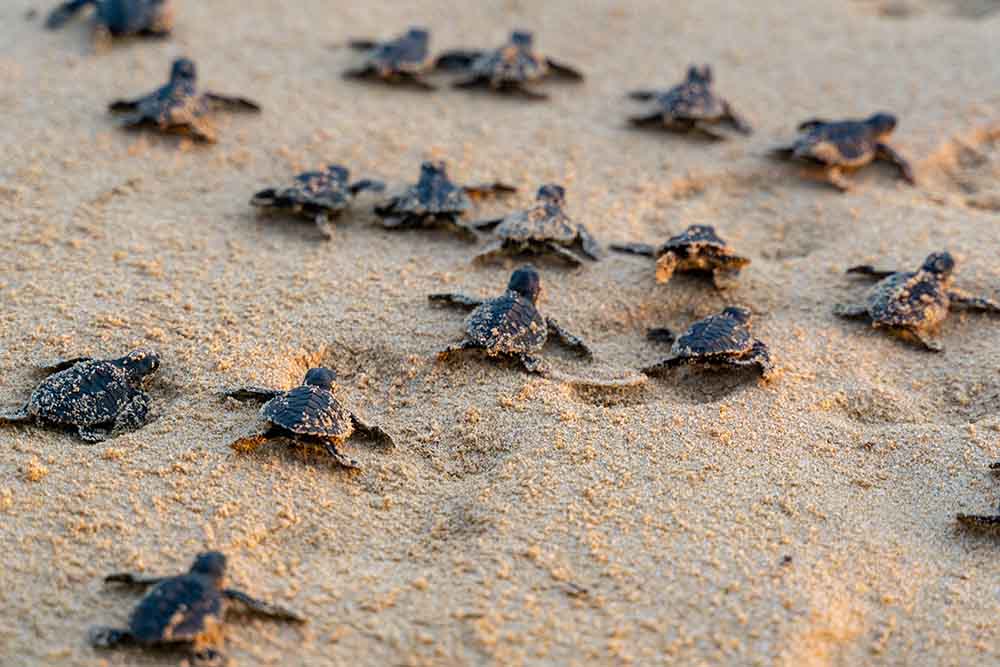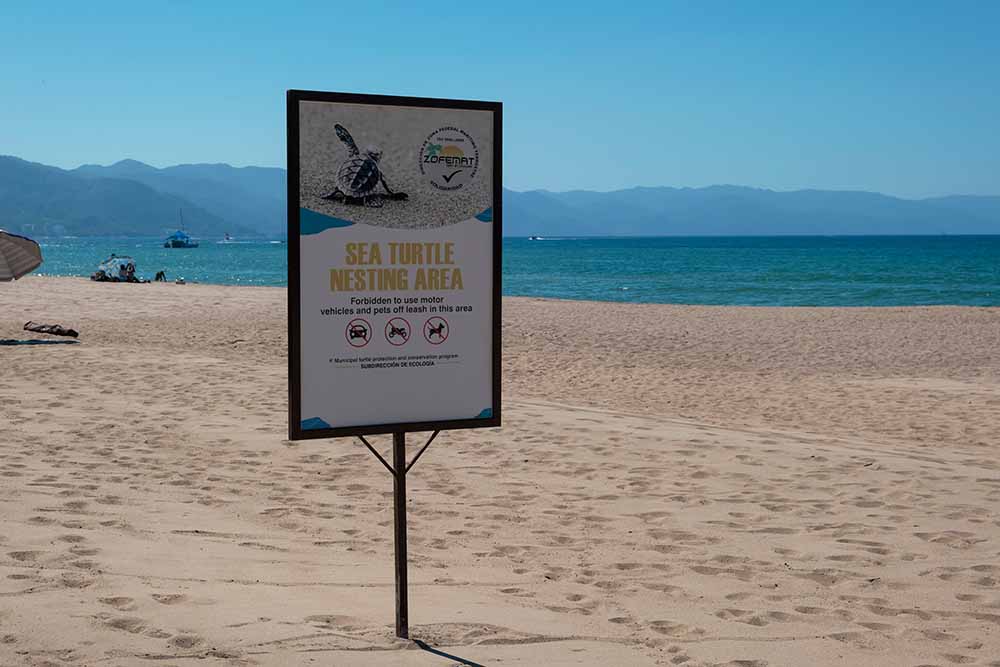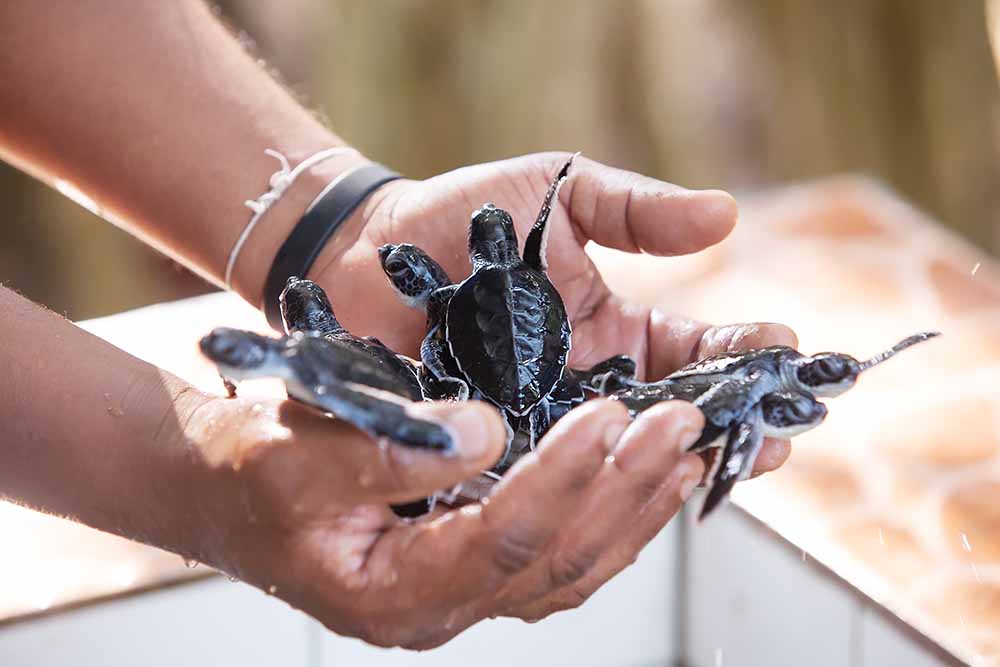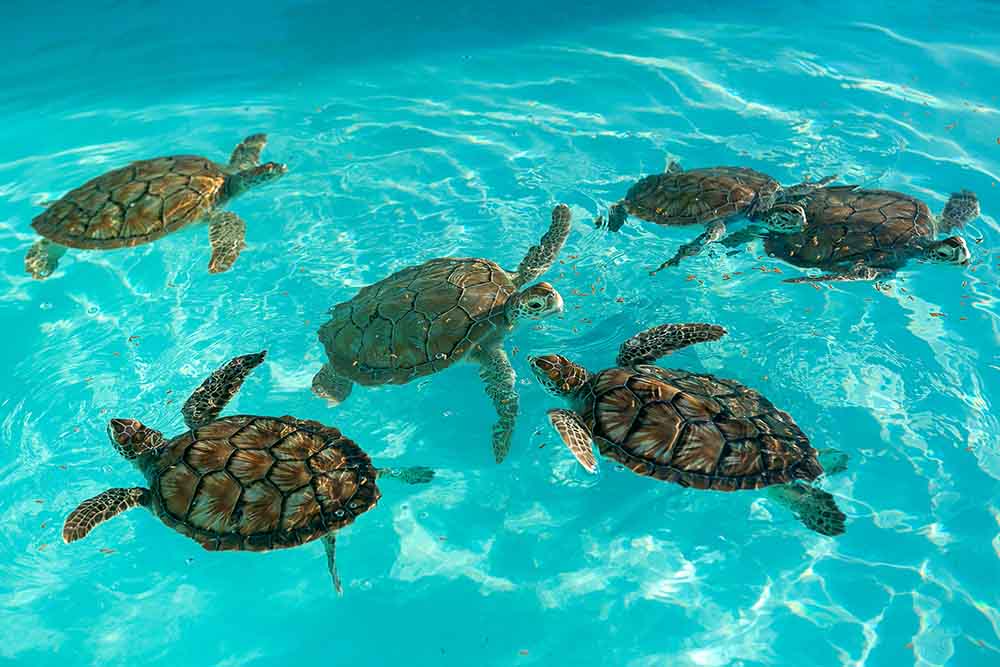As the world celebrates World Turtle Day, it's an opportune moment to reflect on India's rich turtle diversity and the urgent need to protect their habitats. From the rivers of the Gangetic plains to the coastal regions of the Indian Ocean, India is home to a diverse array of turtle species, each playing a vital role in maintaining the ecological balance of their respective habitats.
Understanding India's Turtle Diversity:

Image used for representational purposes only.
India boasts an impressive diversity of turtle species, with over 30 freshwater and marine turtles found across the country. From the iconic Indian Flapshell turtle to the majestic Olive Ridley sea turtle, these reptiles inhabit many ecosystems, including rivers, lakes, wetlands, and oceans. Each species has adapted to its unique environment, demonstrating remarkable resilience in the face of environmental challenges.
India possesses a vast coastline spanning over 7,500 km, with significant portions belonging to Peninsular India and the Andaman, Nicobar, and Lakshadweep Islands, accompanied by an Exclusive Economic Zone (EEZ) of 2.02 million sq. km. Approximately 40,000 to 1,100,000 turtles nest annually along Indian beaches, though nesting numbers fluctuate yearly, impacted by factors such as predation and habitat degradation.
Threats to Turtle Habitats:

Image used for representational purposes only.
Despite their adaptability, India's turtles face a myriad of threats to their habitats. Habitat destruction, pollution, overexploitation of traditional medicine and food, and climate change pose significant risks to turtle populations across the country. Rapid urbanisation, deforestation, and industrialisation have led to the degradation and fragmentation of natural habitats, depriving turtles of essential breeding and foraging grounds.
Conservation Efforts in India:
The Constitution of India recognises the importance of safeguarding marine life and their habitats, with Article 48 A emphasising the state's duty to protect, safeguard, and enhance the environment, complemented by Article 51 A (g), which highlights the citizen's responsibility to protect and enhance the natural environment.
Recognising the urgent need to protect India's turtle species, conservation organisations, government agencies, and local communities have launched various initiatives to safeguard their habitats. Conservation projects focus on habitat restoration, captive breeding programs, scientific research, and community engagement to raise awareness about the importance of turtle conservation.

Image used for representational purposes only.
To address many turtle population concerns, India has also developed the National Marine Turtle Action Plan, which aims to conserve marine turtles and their habitats to ensure the health of marine ecosystems. As per the 'Marine Turtle Nesting Population Assessment along the East Coast of India' data for 2022-2023 revealed significant positive findings. The state of Andhra Pradesh reported 4,626 Olive Ridley turtle nests across 68 nesting beaches, with 67 hatcheries aiding the process, achieving an impressive average emergence success rate of 92.84 per cent. Puducherry recorded 193 nests across 15 beaches, supported by four hatcheries, though with a lower average emergence success percentage of 55.7 per cent. Tamil Nadu documented 2,075 nests over 137 beaches, with 30 hatcheries, maintaining a respectable average emergence success rate of 85.86 per cent. Odisha boasted the highest number of nests across 50 beaches, facilitated by 47 hatcheries, achieving an average emergence success rate of 68.15 per cent.
Ways to Protect Turtle Habitats:

Image used for representational purposes only.
-Preserving turtle habitats requires concerted efforts from all stakeholders, including government authorities, conservationists, local communities, and individual citizens. Key strategies to protect turtle habitats include:
-Reduce, reuse, and recycle to minimise waste generation and prevent pollution of freshwater and marine habitats.
-Support organisations and initiatives that work towards turtle conservation through donations, volunteering, and advocacy efforts.
-Avoid purchasing turtle products or participating in activities that exploit turtles for entertainment or traditional medicine.
-Participate in beach clean-up drives and habitat restoration projects to improve the health of coastal ecosystems and protect nesting sites for marine turtles.
-Educate friends, family, and colleagues about the importance of turtle conservation and encourage them to join the effort to protect these magnificent creatures and their habitats.

Image used for representational purposes only.
As we celebrate World Turtle Day, let us renew our commitment to protecting India's precious turtle species and their habitats. By working together and taking concrete actions to conserve turtle habitats, we can ensure a brighter future for these ancient reptiles and the ecosystems they call home.